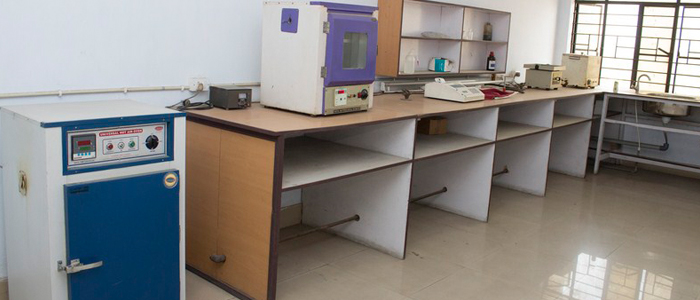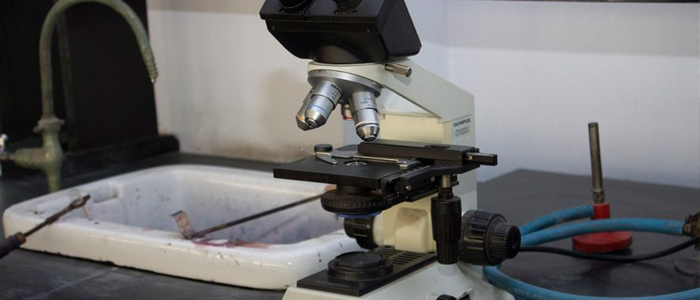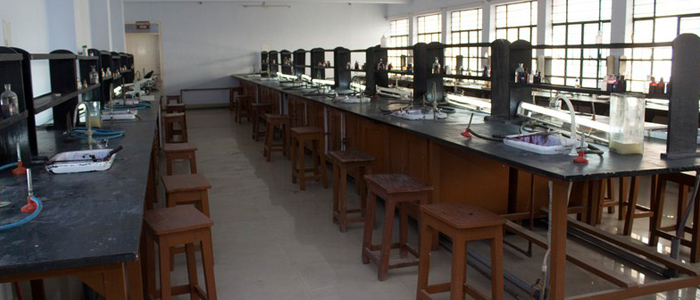Microbiology (from Greek; mīkros,"small"; bios, "life"; and -logiā, "science"): The branch of biology deals with the structure, function, uses, and modes of existence of microscopic organisms. Microbiology is one of the most vital subjects in the understanding of diseases and constitutes an inseparable component of the syllabus in medical sciences.
History
Although microbiology is an inherent part of medical sciences, the subject was considered only a part of pathology till not too long ago. The department has progressed with the times and has grown both in stature and importance over the years. The growth of the department truly reflects the growth the subject itself has seen over the years.
The present scenario
With changing times, microbiology is now not only as important as its parent subject, but is also as an independent department. It is taught as a separate subject in the undergraduate medical curriculum and is also a separate specialization for postgraduate studies.
Infrastructure
Accommodation
The department is spacious and has sufficient accommodation for the teaching and non-teaching faculty members. It has a seminar room, a departmental library, a departmental museum, a demonstration room, a media preparation room and a departmental office room. The seminar room is equipped with overhead projector and LCD projector.
Faculty
The department of Microbiology has a dedicated, sincere, hard-working and well-qualified team of faculty members conversant with all current trends in the subject.
Equipment
The department is well equipped with facilities for research as well as for routine and special diagnostic work. It is equipped with instruments such as autoclave, hot air oven, incubator, colony counter, refrigerator, deep freezer, bio-safety cabinet, anaerobic systems, refrigerated centrifuge, hot air bath, electronic balance, electrophoresis equipment, ELISA system, binocular microscope, students' microscope, centrifuge and VDRL shaker and all other necessary glassware equipment, chemicals and reagents. Anti-sera and reference strains for all common pathogens are available for laboratory work, research and diagnostic work.
Laboratories
The department has a postgraduate research laboratory, a students' laboratory and seven service laboratories for immunology, serology, virology, bacteriology, parasitology, mycobacteriology, and mycology to cater to specialized investigations.
Animal House
A centralized animal house caters to the requirement of animals for experimental and laboratory purposes and provides pedigreed animals.
Departmental library
A departmental/seminar library for faculty members and postgraduate students is available and stocked with more than 230 titles including both reference and text books. Various national and international journals are subscribed for by the college and are available on demand from the central library. Various online journals are also available in the central library.
Academics
- Undergraduate course as a part of the medical curriculum: Microbiology is one of the four subjects covered in the second professional M.B.B.S. course. The syllabus for the Undergraduate course is spread over three semesters of six-month duration and starts after the completion of the one year first professional M.B.B.S. course.
- Postgraduate studies leading to M.D. in Microbiology: The postgraduate course in Microbiology is covered in three years leading to the M.D. Microbiology degree and is of three-year duration, which runs as per MCI guidelines for PG courses. Presently the Medical Council of India has recognized the course and has permitted department for an annual intake of two candidates.
Diagnostics
The department carries out all routine diagnostic activities in its special microbiology section attached to the college central laboratory. All specialized investigations are carried out in the service laboratories located in the department.
Scientific activities
Apart from regular teaching-learning activities and research for both undergraduate and postgraduate students, the postgraduate students have to participate in intra-departmental and inter-departmental seminars, journal reviews, and group discussions. The research activities culminate in the submission of a thesis to the university, for consideration of award of the M.D. (Microbiology) degree.
Other scientific activities
Sterility testing of Operation Theatres, wards and blood banking equipment in the college premises continues to be a responsibility of the department. This has ensured sterile environment in the vulnerable locations and instruments, and maintain a high safety standard.
Activities for external candidates
The department also associates itself with approved part time and short-term projects and training of external students for fulfillment of project requirements of these candidates in other institutes, colleges and universities
Participation in National Programmes
The department is also an active participant of the Revised National Tuberculosis Control Programme (RNTCP) and the Voluntary Counseling and Testing Centre (VCTC) & Prevention of Parent to Child Transmission (PPTCT) of HIV conducted by the Government of India.


